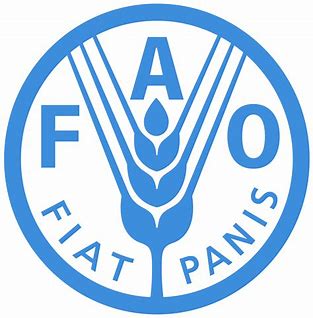

17.04.2020
Since 2020 ATIBT is part of ACSFI represented by Olman Serrano, President of ATIBT.

The Advisory Committee on Sustainable Forest-based Industries (ACSFI) sets priorities to enhance the forest sector’s contribution to the achievement of Sustainable Development Goals.
On Tuesday 31 March 2020, the ACSFI held its 61st meeting. Owing to the challenges presented by COVID-19, the Session was conducted using a web-based format. The meeting was Chaired by Ms Carina Hakansson, Director General of the Swedish Forest Industries Federation.
Established in 1960, the Advisory Committee on Sustainable Forest-Based Industries (ACSFI) is a statutory body of the Food and Agriculture Organization of the United Nations (FAO). As Sven Walter, Secretary of the ACSFI explains, it aims to provide a ‘forum for dialogue between FAO and the private sector to enhance the understanding of emerging opportunities, and to identify strategic actions that promote sustainable forest management, as well as sustainable consumption and production patterns related to forest products.’
The ACSFI and the International Council on Forest and Paper Industries (ICFPA) have a long history of such dialogue and collaboration. The current COVID-19 crisis presents the global forest sector with critical urgent and longer term challenges. The ICFPA is responding to that challenge by working with members to understand the various ways that the sector is responding to the situation. As the Chair of the ICFPA, Mr Derek Nighbor explains, “the ICFPA is working with member associations to develop a comprehensive repository of information related to their COVID-19 responses. This will allow the sector to support and learn from each other in the most timely way possible. We look forward to continuing our constructive relationship with the ACSFI to ensure that the essential services that the forest sector provides can continue during these challenging times.”
During the 61st session of the Committee, the Director of the Forestry Department of FAO, Ms Mette Wilkie highlighted the Department’s three broad areas of focus: Halting Deforestation and Degradation, Sustainable Use of Forest and Forest Products and Restoration. Particular focus must be given on the latter, as FAO, together with the United Nations Environment Program was nominated to lead the implementation of the UN decade on Ecosystem Restoration 2021-30.
The 61st session endorsed the key elements of its new Strategic Framework for 2020-2030, identifying as its priority to catalyze strategic partnerships between the private sector, FAO and other relevant stakeholders to support efforts to achieve the sustainable development goals (SDGs). As Sven Walter further explains, to support this aim, the ACSFI Secretariat has “developed a comprehensive work plan for the ACSFI that seeks to be consistent with FAO priorities for 2020-2021 and the ACSFI Strategic Framework 2020 – 2030 while also providing its members with clear priorities, outputs and outcomes.”
As the only statutory body at FAO that works specifically with the private sector, and as we enter a critical decade to achieve the SDGs, the development of a clear ACSFI Strategic Framework has been essential. Based on the outcomes of a comprehensive review process, the new Strategic Framework 2020-2030 aims to ensure that the ACSFI achieves its mandate in the most efficient and effective way possible. As Dr Lyndall Bull, Forestry Officer at the ACSFI Secretariat outlines: “The development of the ACSFI Strategic Framework is a thorough and important process to enhance the understanding of emerging opportunities and threats for the global forest sector. In particular, it seeks to prioritize those topics that FAO, the private sector, and other stakeholders should focus in the context of the ACSFI to promote the sustainable consumption and production patterns related to forest products.”
Reflecting its focus on sustainable production and consumption, a topic of high importance for the ACSFI is that of forest renewables replacing fossil-based and GHG-intensive products. Called Project Foresight, this ACSFI initiative is being undertaken in collaboration with the European Forest Institute. The ACSFI Chair echoes the interest from the ACSFI in this work: “This report is really important for our climate, our industry and for the sustainable management and use of the world’s forests. We will follow it very closely.”
The meeting concluded with the decision to hold the 62nd meeting of the ACSFI in Australia with support from the current ACSFI Vice Chair and CEO of the Australian Forest Products Association (AFPA), Mr Ross Hampton. As Mr Hampton pointed out: “The forest sector in Australia is experiencing huge challenges this year with the forest fires and the COVID-19 pandemic and it is implementing targeted action to mitigate the effects, which are impacting on Australian forests. AFPA is looking forward to welcome ACSFI members to Australia in 2021 and to share lessons-learned from the Australian forest sector to address these challenges”. The ACSFI Secretariat is fully committed to facilitate action based on the guidance received during the meeting in order to achieve the goals set in the new ACSFI Strategic Framework 2020-2030. It also looks forward to working with our FAO and Australian colleagues to ensure a productive and successful ACSFI 62nd session in 2021 that delivers useful outcomes as we continue to strive for the SDGs.